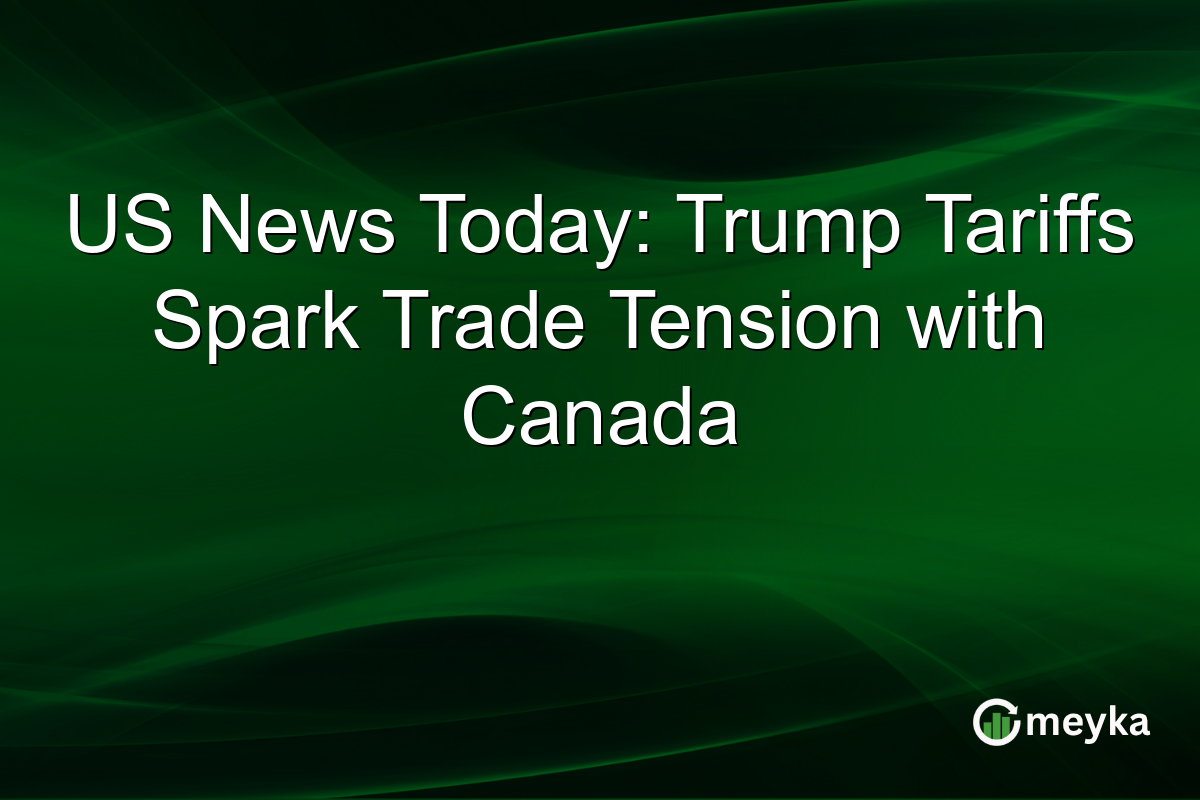US News Today: Trump Tariffs Spark Trade Tension with Canada
Trump tariffs impact United States trade strategies significantly, especially with key partners like Canada. Recently, proposed tariffs by the Trump administration have reignited trade tensions, potentially affecting long-established economic relationships. As investors and political analysts keenly watch these developments, the implications for bilateral trade and economic policies could be profound. The ripple effects of this decision could influence economic dynamics and market behaviors.
The Current State of US-Canada Trade Relations
US-Canada trade has always been a cornerstone of North American economics. In 2024, trade between the two countries amounted to over $700 billion, making Canada the largest trade partner of the US. However, Trump’s recent tariff proposals are unsettling this balance. The proposed 27% tariff on Canadian steel and aluminum has raised significant concerns among Canadian officials, who are considering retaliatory measures.
Industry leaders worry these tariffs could disrupt supply chains that are deeply integrated across the border.
For industries relying on North American materials, this tariff tension signifies potential cost increases and supply disruptions. The anticipation of these changes is already causing market jitters as businesses evaluate their strategies for raw materials sourcing.
Economic and Political Repercussions
The political ramifications of these tariffs are notable. While intended to protect American industries, they risk damaging diplomatic relations with one of the US’s closest allies. Canadian Prime Minister, Justin Trudeau, emphasized the unjust and harmful nature of these tariffs, potentially leading to a dispute in international trade forums.
Economically, these tariffs might lead to increased prices for consumers and manufacturers, compressing profit margins. Historically, tariffs can also decrease trade volume, altering a previously balanced economic exchange.
Investors should be wary of these developments, as market reactions might reflect apprehensions over potential policy shifts and trade flows.
Long-term Implications for Bilateral Trade
The long-term implications of Trump’s tariffs could reshape US-Canada trade dynamics fundamentally. Analysts predict that if the tariffs are enacted, Canada might pivot towards alternative trading partners, diversifying its economic dependencies. This shift could diminish the US’s share in Canadian international trade activities.
For American businesses, especially those in the automotive and construction industries relying heavily on Canadian materials, the short-term cost hikes might necessitate re-evaluation of operational strategies or finding new suppliers altogether. The American consumers might also feel the pinch through increased costs of goods and services.
With these potential paths, maintaining a cooperative trade environment seems paramount for sustained economic health.
Final Thoughts
In conclusion, Trump’s tariffs have ignited significant trade tensions between the US and Canada. As both countries navigate these challenges, investors need to monitor developments closely. Potential shifts in trade policies and economic relationships may lead to broad impacts on industries and consumer prices. Long-term, these tariffs could permanently alter the trade landscape, requiring both nations to adapt. Understanding these dynamics will be crucial for businesses and policymakers to mitigate any negative effects. As these events unfold, the hope is for a resolution that maintains the vital trade relationship and benefits both economies.
FAQs
Trump’s tariffs have increased tensions between the US and Canada, particularly with proposed tariffs on steel and aluminum. These could disrupt trade routes, elevate costs for industries, and strain diplomatic relations.
Businesses relying on cross-border supplies might see increased raw material costs and disrupted supply chains. This could lead some to seek alternative suppliers or adjust pricing strategies.
Canada might impose retaliatory tariffs or seek alternative trading partners to reduce dependence on the US. Such actions could further strain trade relations and affect economic partnerships.
Disclaimer:
This is for information only, not financial advice. Always do your research.






